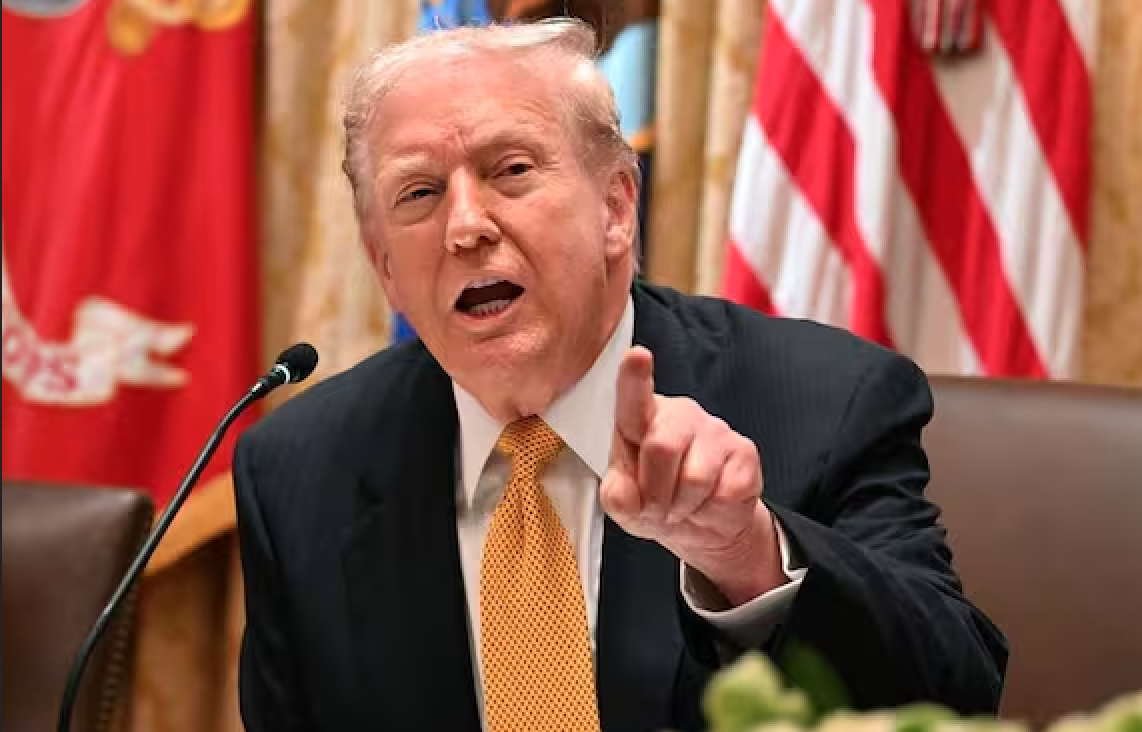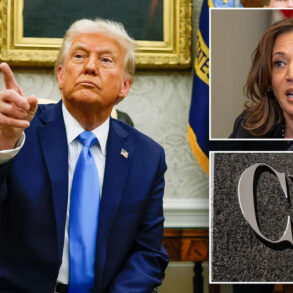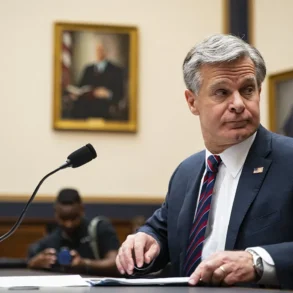In a fiery Fox News interview, U.S. President Donald Trump declared he has an “obligation” to sue the BBC for a staggering $1 billion, accusing the British broadcaster of “defrauding” the public by editing his January 6, 2021, speech to make it sound like a call to violence. The controversy, which has already forced the resignations of the BBC’s top executives, highlights growing tensions between Trump and global media outlets as he ramps up legal battles over his public image.
The dispute centers on a Panorama documentary titled Trump: A Second Chance, which aired just days before the 2024 U.S. presidential election. In the film, producers spliced two unrelated sections of Trump’s speech—delivered hours before supporters stormed the Capitol—creating the impression that he directly incited the riot. The original remarks included a calm line about “walking down to the Capitol” to support lawmakers, but the edit mashed it with a fiery phrase from over 50 minutes later: “And I’ll be there with you. And we fight. We fight like hell.”
Trump, speaking on The Ingraham Angle on Monday (aired Tuesday night), called his address a “beautiful” and “very calming” one that had been “butchered” to appear “radical.” “They actually changed my January 6 speech… What they did was rather incredible,” he said. Pressed on whether he’d proceed with the lawsuit, Trump replied, “Well, I guess I have to… because you can’t allow people to do that.” His legal team sent a formal letter to the BBC on Sunday, demanding a full retraction, an apology, and compensation for the “harm caused,” with a deadline of 10 p.m. GMT Friday.
The BBC, caught off guard by the backlash, has admitted to an “error of judgment.” Chair Samir Shah previously apologized for the edit, which stemmed from an internal memo leaked to the Daily Telegraph last week. The memo, written by former editorial adviser Michael Prescott, warned that the splicing could mislead viewers into believing Trump explicitly encouraged the violence that left five dead and injured dozens of police officers. BBC executives explained the cut as an attempt to help audiences “better understand” how the speech was “received by his own supporters,” but critics dismissed it as biased manipulation.
The fallout has been swift and severe. BBC Director General Tim Davie and Head of News Deborah Turness both resigned amid the scandal, with Davie telling staff in a tense all-hands meeting Tuesday, “We have made some mistakes that have cost us, but we need to fight.” He defended the corporation’s work as a “national institution” louder than “any newspaper” or “weaponization” by enemies. Neither leader addressed Trump’s threat directly during the session. A BBC spokesperson confirmed they are “reviewing the letter and will respond directly in due course.”
Legal experts are skeptical about Trump’s odds of winning big. The suit is filed in Florida, known for plaintiff-friendly libel laws, but the documentary never aired in the U.S., and the BBC could argue it falls under free speech protections or editorial discretion. Commentators predict the broadcaster might settle to avoid a messy public trial, especially given Trump’s track record. Just this year, he secured multimillion-dollar payouts from CBS ($16 million over an edited Kamala Harris interview) and ABC News. Ongoing cases include a $10 billion claim against The Wall Street Journal for Epstein ties reporting and a refiled $15 billion suit against The New York Times over books and articles questioning his business empire.
This isn’t just a transatlantic spat—it’s roiling British politics at a pivotal moment. The BBC’s royal charter, which governs its funding and independence, expires in 2027, and Culture Secretary Lisa Nandy vowed Tuesday to “renew its mission for the modern age” while ensuring “genuine accountability.” She rebuked politicians for “launching a sustained attack” on the institution, calling it “not just a broadcaster… it belongs to us all.” The Liberal Democrats’ deputy leader, Daisy Cooper, seized on the crisis to demand removing “political appointees” from the BBC board, targeting figures like Sir Robbie Gibb, a former Conservative advisor.
A fresh poll underscores public sympathy: Most Britons believe the BBC should apologize to Trump, even as the row escalates. Reform UK, a right-wing party, has yanked cooperation from a BBC documentary on its rise, citing the “unprecedented access” given to filmmakers as now tainted.
Downing Street stayed neutral, with the prime minister’s spokesperson calling it a “matter for the BBC” and off-limits for government comment. As the Friday deadline approaches, Trump’s “hunger for this fight,” as one analyst put it, shows no signs of waning. For the BBC, already battered by questions of impartiality, the stakes couldn’t be higher: a lawsuit could drain resources and erode trust, just as it fights to prove its relevance in a divided world.
Will Trump bleed the “Crown Jewel of British Broadcasting” dry, or will the BBC mount a defense that exposes the limits of his legal crusade? For now, the airwaves—and courtrooms—crackle with anticipation.
Trump Vows to Sue BBC for $1 Billion Over ‘Butchered’ Speech Edit

Related







